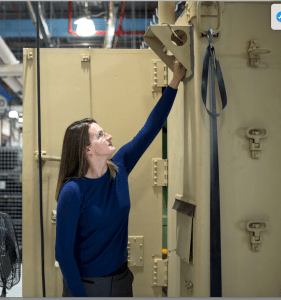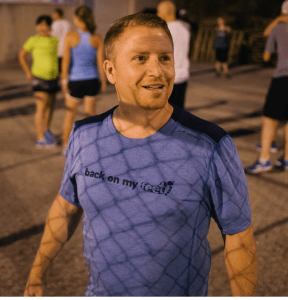
Recently, in my perusal of the Sunday New York Times, I saw the headline “Vocations: Tasting chocolate every day, for pay.” Vocations and chocolate? I had to read on.
What I found on the second page of the business section was an extensive interview with Brad Kintzer who is the chief chocolate maker for Tcho Chocolate in Berkeley, California. There were many moments of vocational reflection in the interview, including Kintzer’s review of his academic path: “I’d been interested in plant life as an environmental studies major at the University of Vermont with a focus on botany…. The cacao bean fascinated me from the first time I saw its tree in a greenhouse at the Montreal Botanical Gardens.” He also commented on his general curiosity and wide learning, describing the botanical aspects of cacao, the cultural uses of the bean, and its historical and spiritual significance.
The Vocations column is full of these sorts of stories—tracing people’s professional paths which inevitably involve other aspects of their lives. Though the Times’ writers describe the column as “people from all walks of life talk about their jobs” the column really does much more than that. The title “vocations” is obviously meant in a more narrow sense from the newspaper’s perspective, but I think we can see it in a broader, more nuanced way which speaks to the important work of vocational discernment, of finding individual purpose in communities and relationships throughout one’s life.
First, the column pushes the boundaries of how we traditionally consider work and career. There is often a tension between promoting consideration of meaningful work with the pressure of careerism. [For more on this pressure, see Jason Mahn’s two-part reflection from last spring – ed.]. Part of our roles as mentors and educators is to provide ways for students to explore ideas, experiences and critical problem solving around the culture of work. Vocations profiles individuals who bring their unique gifts to a professional role; the interviews showcase aspirational jobs, unconventional workplaces, behind-the-scenes glimpses, and prominent leaders. The residual effect of reading the interviews is to respect and value our diverse roles and their interdependence.

Next, the stories reveal the ways people are able to move from different stages of their careers, using skills they had cultivated earlier in new and inventive ways. Cranberry farmer John Moss earned a computer science degree from St. Norbert College and started a software company before returning to his family’s business: “Looking back, I realize I had been drawn to software so I could improve some processes on our farm.” Hue Nguyen, an accomplished seamstress for astronauts, escaped South Vietnam to the Philippines, eventually arriving at refugee camp in the US. She worked in a variety of clothing stores, started a home business when she had a family, and now works for Leidos, a science, engineering and I.T. services company. These two interviews highlight how gifts can be applied in different contexts and to greater communal and personal benefit. Understanding that one’s first job or degree is a stepping stone to another role is fundamental to our seeing the connectedness of purpose and profession. [See “Connecting the Dots” for another example of this – ed.].
Vocations does privilege the individual’s experience but vocational conversation and discernment does not. This is where we can encourage contextualizing professional and real-world problem solving through civic action and community engagement. At Loras College, our Honors Program features three-year-long group research projects in which students collaborate with community partners, establishing reciprocal relationships. As Darby Ray, director of the Harvard Center at Bates College, reminds us, we can see “civic engagement as a vocational discernment practice.” In working together with community-partners, students can begin to see their work as shared work, cultivating responsible citizenship and widening the ways one sees work as embedded in larger environments. But, this community connection can also prompt individual reflection. Ray suggests that
as sustained, shared work for the common good, community engagement at its best cultivates habits of attentiveness and deep listening… such listening doesn’t come easily, which is why we speak of vocational discernment instead of vocational achievement. Discernment is an ongoing process that takes time and courage. (At This Time and In This Place 313)
Importantly, one’s workplace can become a vehicle for helping others develop, even beyond traditional co-worker relationships into the wider community.

Veronica Cintron, a materials engineer at Raytheon, suggests that her role in an employee resource group opened doors to mentor others. She serves as a leader of the Hispanic Organization for Leadership and Advancement (HOLA): “We’ve held a 3D printing seminar to teach other employees about the technology, and we do a lot of outreach, such as giving a STEM presentation in Spanish at a local elementary school with a Spanish immersion program. I’ve also gained intangible leadership skills.” While she contributes to the larger community through her career, her career is also a launch pad towards community engagement. This sort of model is fundamental to not seeing one’s career as a silo but rather as a gateway to mentoring others.
Thus, as we look for professional models of innovative work and self-reflection, prompting students to listen to others’ stories, we also want to encourage students to see work as connected to community needs. Reading Vocations or listening to Story Corps are rich resources for considering the ways individuals discern professional and personal purpose. I regularly use an interview assignment for students in which they seek out stories from mentors or people who have taken an unconventional path, as a way to consider meaning in work and life (using both Story Corps and Vocations). Both sources give models of questions and reflective answers.
Here is a sample list of questions from recent interviews:
- How did you get interested in this field?
- How did your career develop?
- What has been particularly challenging to work on?
- What are some examples of problems you might encounter?
- How do you assess your own progress?
- How do you measure success?
In my students’ reflective papers after the interview, they analyze the ways the individual’s work links to the work of the community, as well as the way it reflects self-assessment and risk-taking. The goal is for students to begin to see vocational discernment as interconnected with academic work, community work and broader life-experience.
Lastly, vocation involves a firm reminder about who we are beyond our professional titles. As John Neafsey suggests, “our callings have to do with the kind of person we are called to be… the values and attitudes we embody, the integrity and authenticity of our lives” (A Sacred Voice is Calling 5).

Matthew Joseph, who works at the non-profit Back on My Feet, an organization that uses running as therapy for those who are fighting addiction and homelessness, credits his work for aiding in his personal transformation. He says “this job has allowed me to take the worst experience of my life and spin it as an asset instead of a liability. I’ve been there, which helps me help others. I’m also enrolled in a master’s program in counseling, so I’ll be able to help members even more.” Seeing how people navigate struggle or dead-ends to find fulfilling careers provides hope in the process and the ways that current opportunities can become life-changing and life-giving.
Vocations can be about vocational discernment when we bring the principles of vocation forward to meet our discussion of “jobs.” People commonly begin to connect their work to others—to the people served through the work, to the product’s purpose in the world, to the ways specialized knowledge can be shared. It is our job to prompt this connected conversation and discernment, so that students can meaningfully contribute to community and workplace.
Erin VanLaningham is Associate Professor of English and Director of the Honors Program at Loras College in Dubuque, Iowa. She teaches courses in the British Novel, Spiritual Memoir, and Women’s Writing, and has published in a variety of academic journals. In 2017, she was selected as a participant in NetVUE’s Teaching Vocational Exploration seminar.

